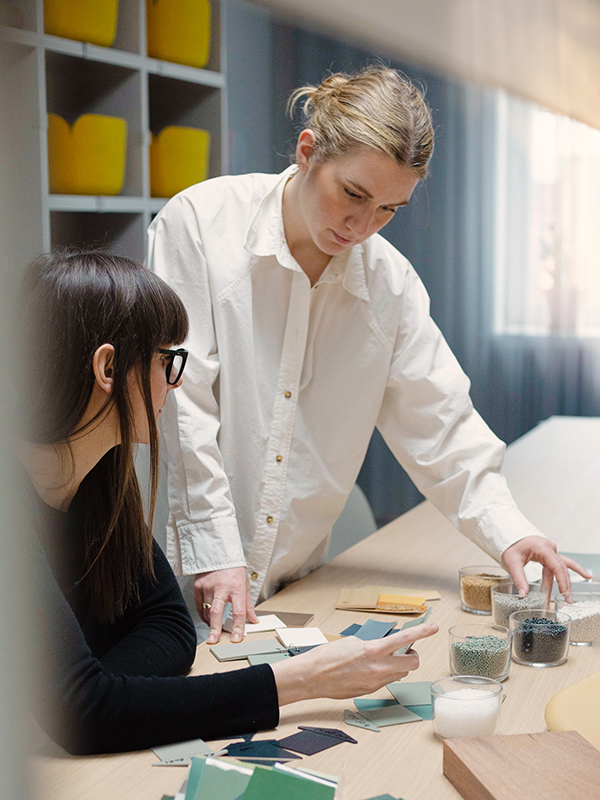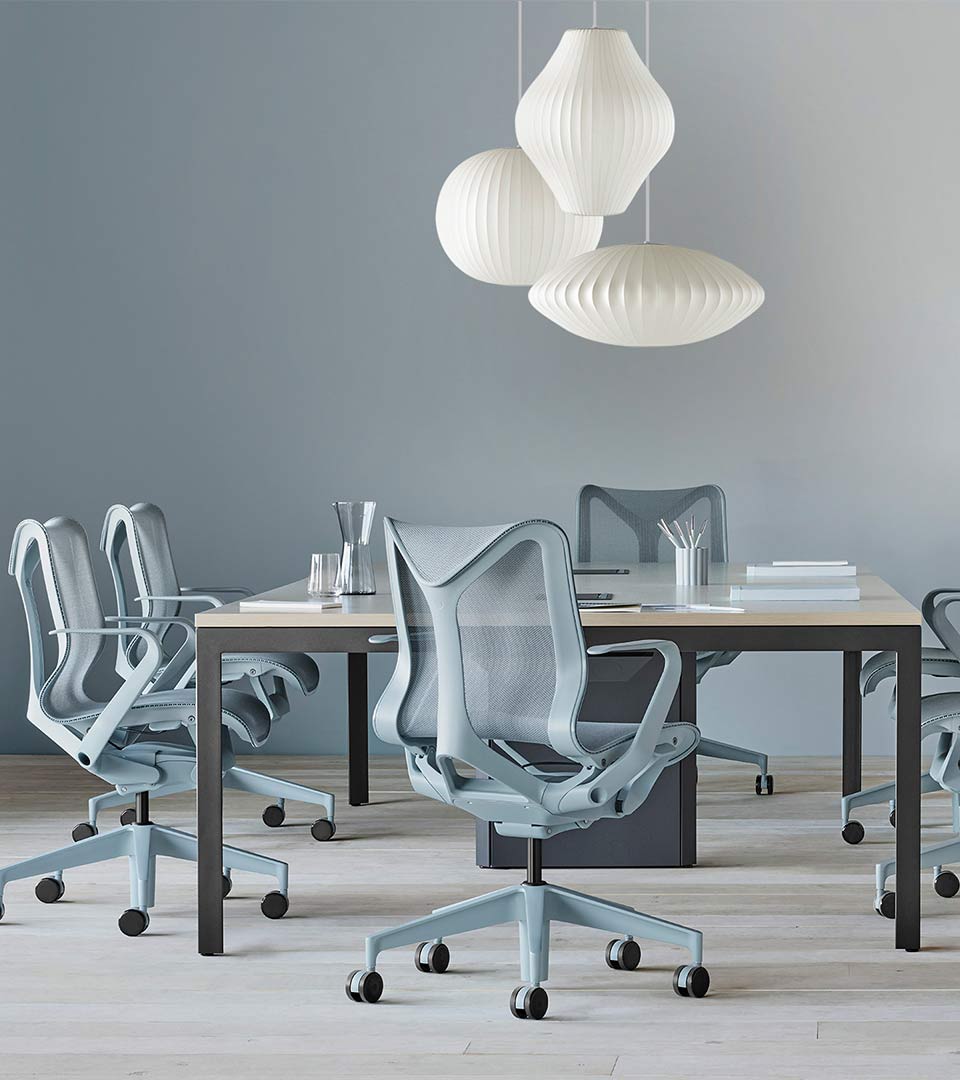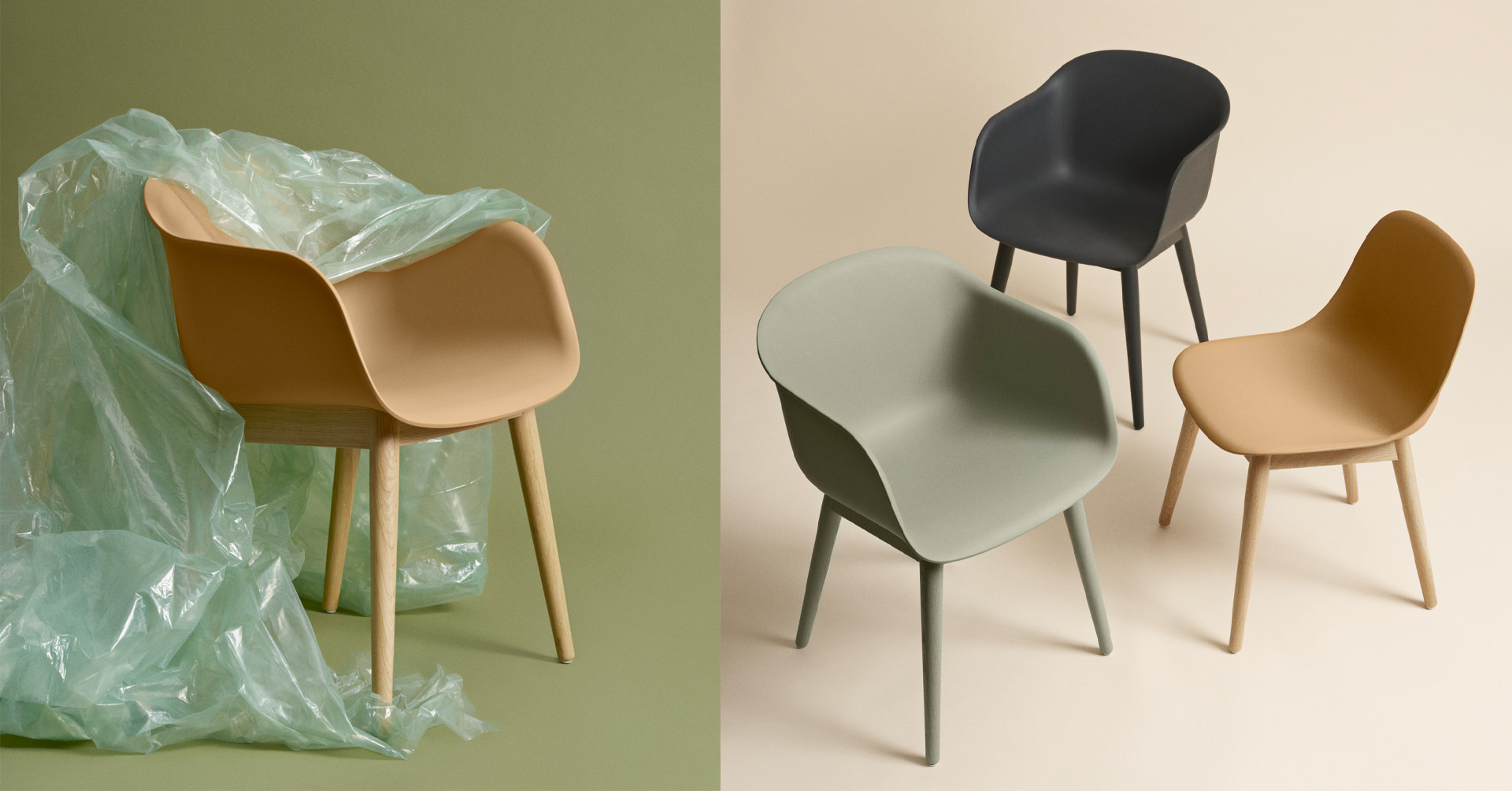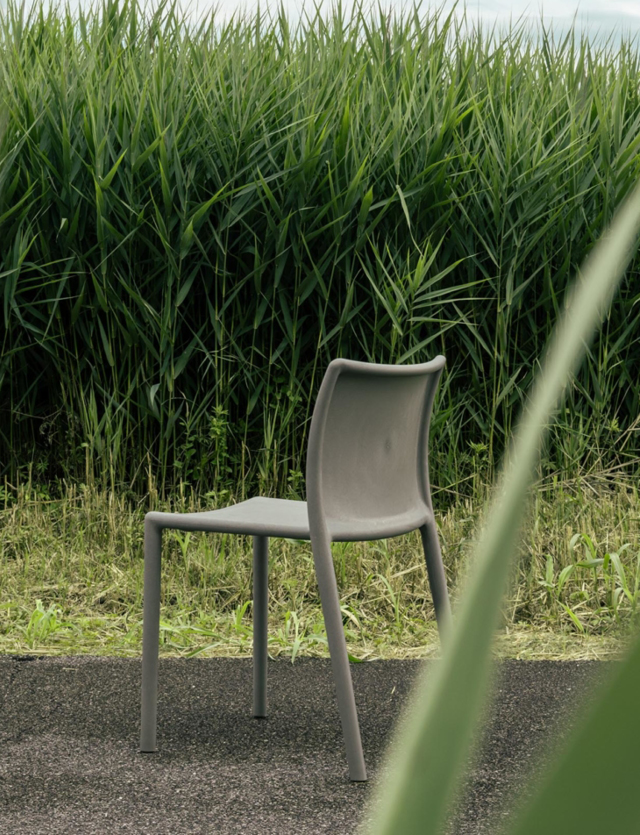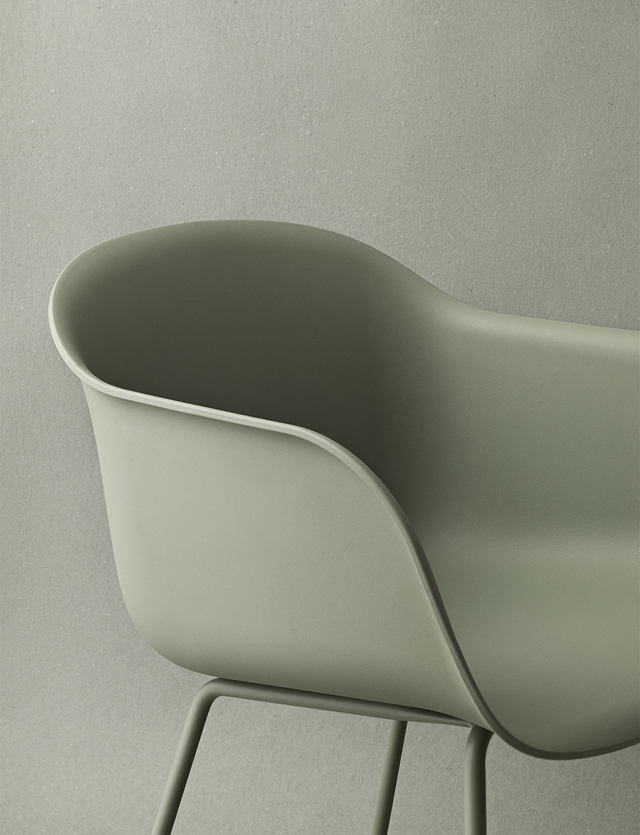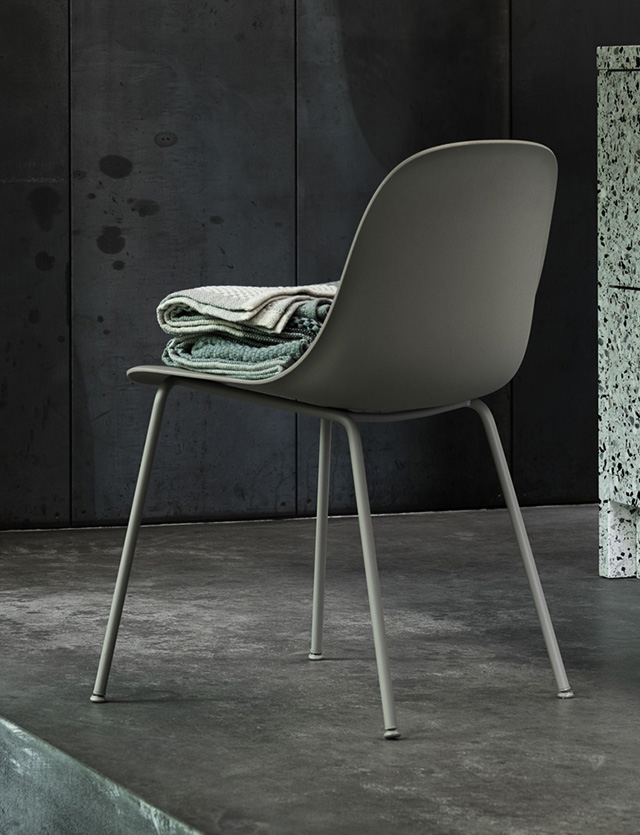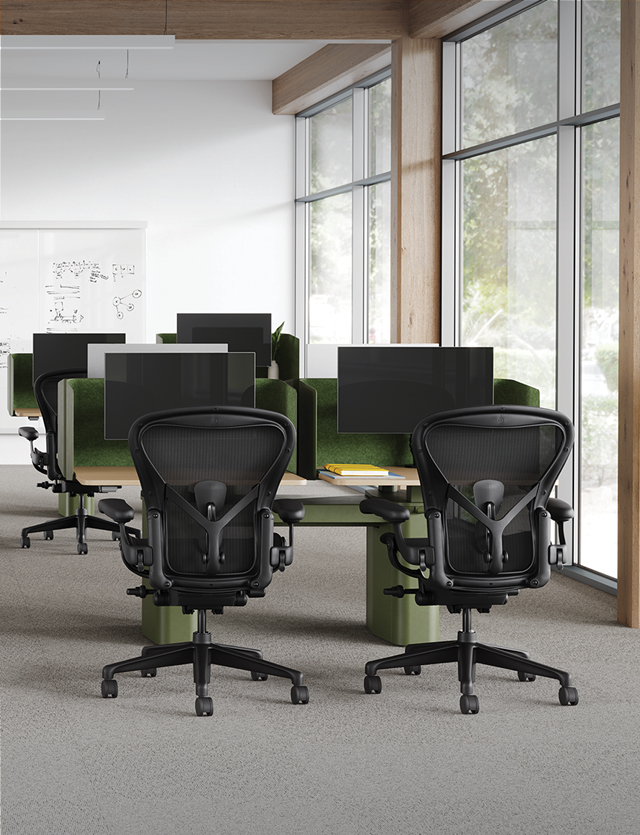The Fiber chair brings a new perspective to the iconic shell chair through its innovative composite of recycled plastic and wood fibres.
Designed by Danish design studio, Iskos-Berlin, Fiber combines simple sculptural forms with friendly embracing curves to deliver comfort and an enduring aesthetic. The addition of wood fibres to the composite shell material creates a unique matte finish with a soft and inviting touch.
First launched in 2014, the Fiber chair was conceived with sustainability at the forefront of the design brief. Muuto embedded circular design principles into the development of the range, designing each model for disassembly with recyclable materials that can be separated and returned to the manufacturing process via a dedicated ‘Fiber Take-Back’ scheme.
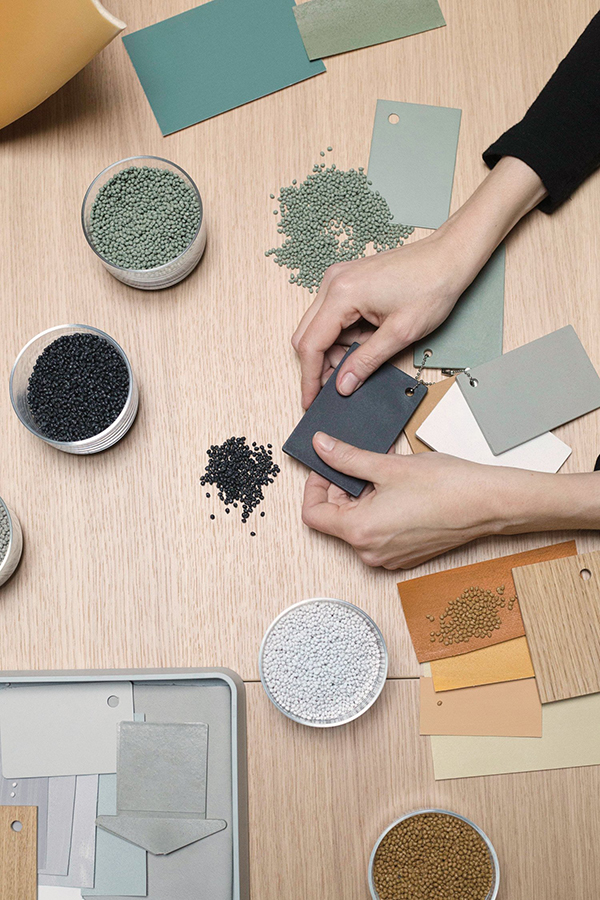
Remaking the Fiber Chair
Muuto’s ambition with the new generation Fiber chair was to remake the product, replacing virgin plastic in the composite shell with recycled plastics, and using 100% sustainably sourced wood fibres. The result of their ambition is a modern design classic that combines a minimum of 80% post-industrial recycled plastic with 100% FSC certified wood fibres.
Muuto recognise the environmental benefits of maximising the use of recycled plastics are numerous; it reduces raw material consumption and the extraction of oil and gas, it reduces pollution and waste by reclaiming valuable material destined for landfill, and it reduces emissions because recycled plastics require far less energy to manufacture than virgin material.
Muuto have set an ambitious target, aiming to substitute more than 50 tons of virgin plastic with recycled plastic in 2022.
Embracing Challenges to Drive Innovation
The goal of reengineering the product’s core material did not come without difficulties. Trine Mulvad Steffensen, CSR Manager at Muuto, has described the challenges of finding a reliable source of high-quality recycled plastic. But as the saying goes – where there’s a will, there’s a way.
“…it’s a bit of a wild wild west situation where you never quite know what you’re getting and if you will be able to buy the same material again in the future. Most recycled plastic today comes from household waste, more or less a murky shade of dark grey and of a vastly varying quality. As we would need a steady supply to a material that can produce a replicable result with the same properties every time, we had to find a supplier that could guarantee just that. Our pursuit for the ideal raw material felt a bit like detective work, chasing leads with a lot of dead ends. Finally, we succeeded in finding a source of post-industrial waste material from eyewear production that makes up around 80% of the plastic in the Fiber Chair’s shell.”
What’s more, the new recycled material behaved very differently to the original virgin material, creating a new type of bond with the wood fibres. As is so often the case, this accidental discovery led to an unexpected benefit, with the new composite material offering a more textured and tactile finish, with a pleasing organic grain that is more tangible to the eye and touch.
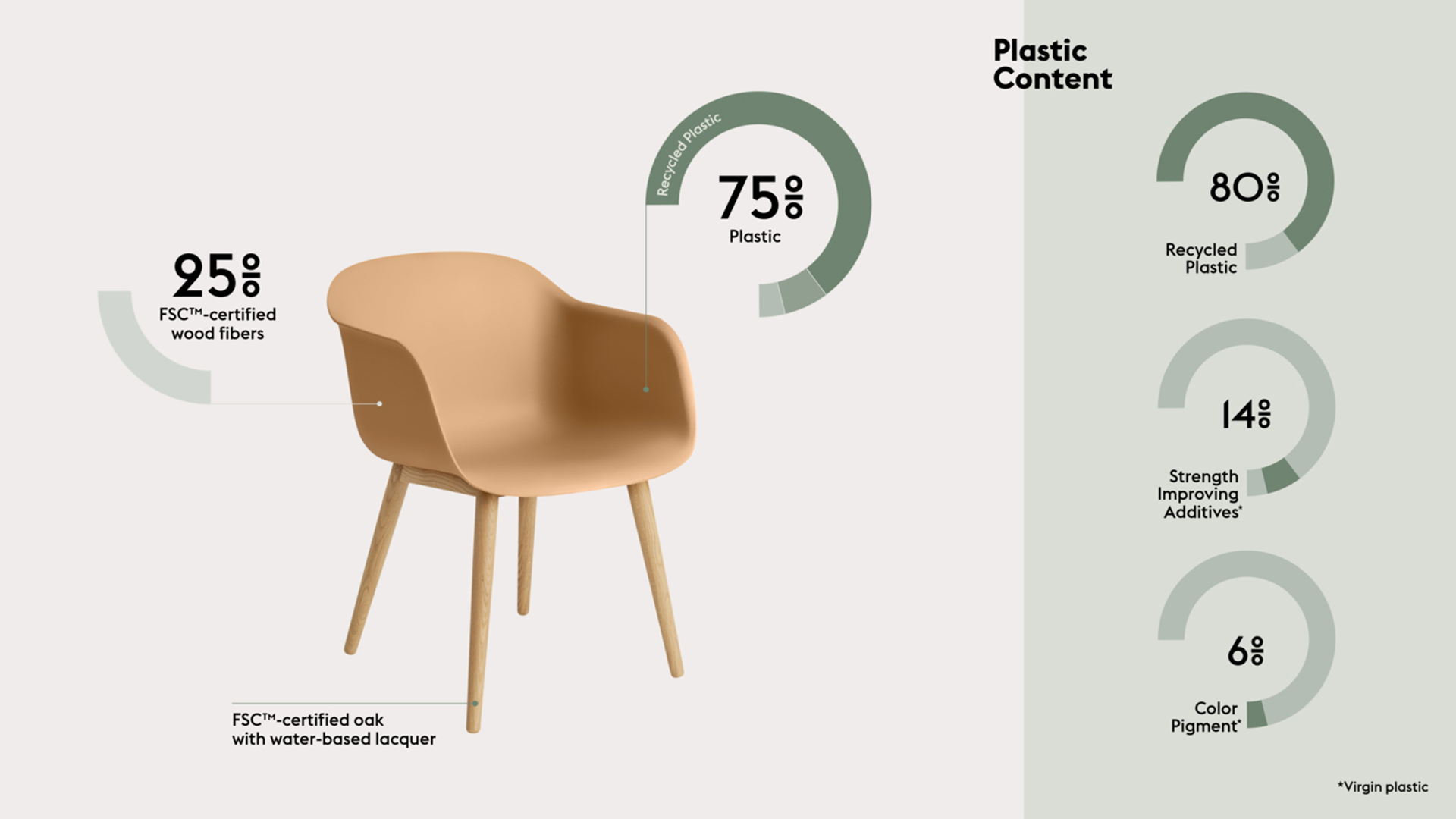
“In the end, working with the new material has been a blessing, making the wood fibres tread more into the forefront of the design, producing a beautifully tactile surface.”
Silke Foged, Design Manager at Muuto, has also spoken about the challenges of replicating the sophisticated colour palette of the original Fiber chair using the new recycled base material. The reclaimed material from the eyewear industry is relatively transparent compared to most recycled plastics, which meant the yellow colouring of the wood fibre was more apparent in the material. This led to a careful balancing act with the pigments added to the composite during manufacturing.
“As there is more yellow in the mix, we have to compensate with a contrasting colour – in this case, blue. Old school colour theory, really.”
A Low Carbon Product
The new generation Fiber chair is a low carbon product. Recycled plastics have much lower embedded carbon than virgin plastics, as the energy required in the mechanical recycling process is significantly lower than the energy required in the ‘cracking’ process used in virgin plastic manufacturing.
The shell of the new generation Fiber chair is also manufactured using 100% renewable energy, and the supplier of the composite material is certified carbon neutral. Furthermore, Living Edge offset all the freight emissions delivering the product, from factory gate to your front door!
If you would like to know more about the Fiber chair, or our extensive range of sustainable products, please don’t hesitate to get in touch!
